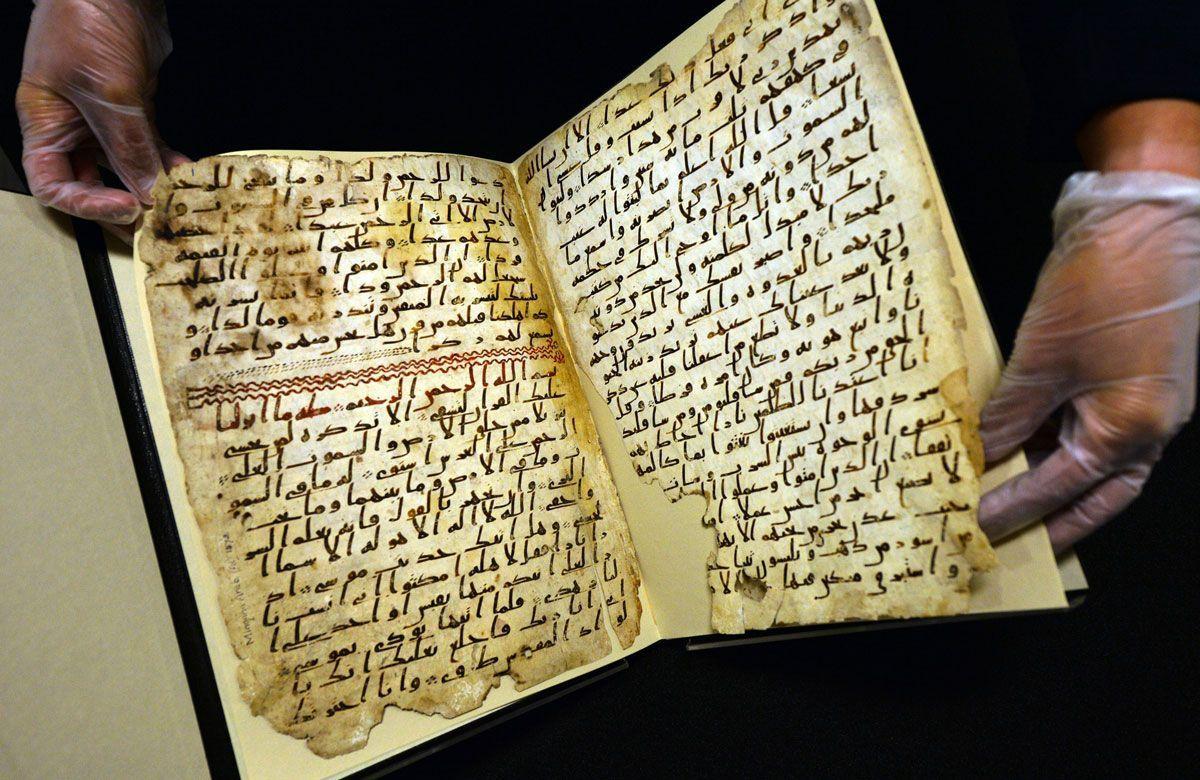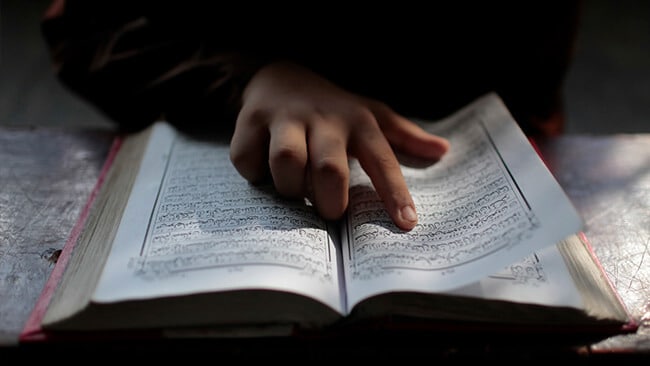When was the Quran written? The early Muslims memorized and recorded the Quran’s verses as they were revealed to Muhammad by the angel Gabriel.
What Is the Quran and Who Wrote It? Key Facts Explained
The Prophet Muhammad took particular efforts to guarantee that the Quran was written down as it was being revealed. Muhammad recited poems by mouth and urged his followers to record them on any materials they could find, including tree branches, stones, leather, and bones. As soon as the scribes finished their work, they would read it back to the Prophet, who would double-check for any faults. Muhammad specified the order in which each new verse was included in the increasing body of verses.
The Quran had been completed at the time of Muhammad’s death. However, it wasn’t in book form. The Companions of the Prophet had a variety of parchments and materials in their hands that contained this information.
When was the Quran written?: Under Supervision of Caliph Abu Bakr
Even after Muhammad’s death, the entire Quran was held in high esteem by early Muslim adherents. A major amount of the Qur’an was recited every day by Muslims who had learned it from the Prophet’s early Companions. Personal copies of the Quran were also recorded on a variety of materials by early Muslims.
In the Battle of Yamama, ten years after the Hijrah, many of these scribes and early Muslims were slaughtered. They began to be concerned about how to preserve the Holy Quran as the community grieved for their fallen companions. Allah’s words needed to be preserved, thus Abu Bakr instructed all persons who had penned Quran pages to put them together in one location. A major scribe of the Prophet Muhammad, Zayd bin Thabit, coordinated and oversaw the project.
Four stages were involved in the compilation of the Quran from these many written pages:
In order to be sure, Zayd bin Thabit recited each verse from memory.
Two. Each verse was authenticated by Umar ibn Al-Khattab. The Quran had been memorized by both men.
The words had to be penned in the presence of the Prophet Muhammad in order to be authenticated by two trustworthy witnesses.
Verified written poems were compared with those from the collections of other Companions.
It was done with great care to review and double-check the information from several sources. We wanted to provide a comprehensive resource that everyone in the community could access and rely on in times of need.
Umar ibn Al-Khattab, the next Caliph, received this entire copy of the Quran from Abu Bakr. When he passed away, his daughter Hafsah was handed possession of them (who was also a widow of the Prophet Muhammad).

When was the Quran written? :Under Supervision of Caliph Uthman bin Affan
As Islam expanded over the Arabian peninsula, individuals from as far away as Persia and the Byzantine Empire began to join the religion. Many of these new Muslims did not speak Arabic as their first language, or they spoke Arabic with a somewhat different pronunciation from the local tribes in Makkah and Madinah. Pronunciations began to be debated among the general public. Caliph Uthman bin Affan was responsible for ensuring that the Quran was recited in a consistent manner.
From Hafsah, I borrowed the Quran’s original, compiled copy for the first time. It was the job of an early Muslim committee to transcribe the original document and ensure that the chapter arrangement was right (surahs).
Uthman bin Affan ordered the destruction of all remaining transcripts of the Quran once the perfect copies had been made.
The Uthmani translation of the Quran, finished less than two decades after Muhammad’s death, is the only one that exists today.
To facilitate reading by those who aren’t Arabs, small alterations were made to the Arabic script (such as the addition of dots and diacritical markings). The text of the Quran, on the other hand, has remained unchanged.
What Is The Quran, And Who Wrote It?
“The Recitation”
The Quran is a book of divine revelations revealed by the Angel Gabriel to the Muslim Prophet Muhammad. This is the most important Islamic holy literature, and possibly the best ever written in Arabic. It is also known as the Quran or Koran. The term Quran literally means “recitation.” The Koran was revealed to Muhammad during a 23-year period by the Angel Gabriel. The Koran follows in the footsteps of Noah, Abraham, David, Moses, and Jesus in terms of proselytism and enlightenment. According to the Koran, faithfulness to God leads to heaven, while disobedience leads to eternal damnation. In terms of the historical events they recount, the Koran and the Bible have numerous parallels, yet their interpretations differ significantly. During Muslim prayer time, the Koran must be recited solely in Arabic.
Revelations Unto Muhammad
In a cave named “Hira” the Prophet Muhammad is said to have received the Koran’s teachings from God. Saudi Arabia’s Mecca is around 2 kilometers away from this cave. Despite the fact that the cave receives an estimated 5,000 visitors each day during the Hajj season, it is not included in the Hajj pilgrimage itinerary. After moving to Medina with his companions, Muhammad discovered the cave. While Muhammad was receiving revelations from the Koran, he was also teaching it to his followers. He urged them to disseminate God’s rules, which they did, inscribed on palm fronds, bones, and tablets over time. As a result, many Muslims at the time were familiar with only a few chapters of the Koran, rather than the entire book as we know it today.
Compiling the Revelations into Written Language
In the year 655, a group of scribes led by Zayd ibn Thabit resolved to synthesize all of Muhammad’s distributed teachings. Thabit and his colleagues ultimately succeeded, and with the assistance of additional scribes, created a comprehensive, hand-written record of the prophet Muhammad’s oral teachings. The Koran was then retained by the first Caliph (primary Islamic leader), Abu Bakr, in order to protect it. It was passed down to Muhammad’s wife after his death. After noticing some minor discrepancies in phrasing and pronunciations, the third Caliph, Uthman ibn Affan, commissioned another version, which was also collected by Zayd ibn Thabit, to eventually produce a standard version. Although modern Muslim academics agree that the current Koran is the translation commissioned by Abu Bakr, the third caliph issued an order to burn the original edition. Certain sections, however, claim that around the year 661, the Shi’a Muslim Ali ibn Abi Talib compiled a chronological version of the Koran shortly after Muhammad’s death. The chronological account, on the other hand, was regarded as legitimate and truthful by the third caliph.
Significance of the Koran Today
Suras (chapters) in the Koran range in length from a few lines to a few paragraphs. They are divided into two halves, the Meccan and Medina. For this purpose, each sura was separated into two groups: those that were recited before Muhammad’s migration to Medina and those that were recited after Muhammad’s migration to Medina. A week’s recitation of the Koran is split into seven equal sections (manzil), which correspond to the number of days in a week. Over the centuries, the Koran has been subjected to commentary and exegesis, generally in light of the profound spiritual significance that each chapter and verse has for Muslims. Because the Koranic Arabic was written and spoken in classical Arabic, some subsequent converts misunderstood it because they had no working mastery of the language. Many Middle Eastern countries already spoke Arabic during the time of Muhammad, but it wasn’t until the Koran was completed that the language blossomed from its classical to post-classical phase. ‘ Wadad Kadi and Mustansir Mir, two academics and Arabic and Islamic subject matter specialists in the United States, say that the book had a profound impact on the development of Arabic literature. Salman the Persian originally translated the Koran into Persian in the 7th century, although the Koran has always been difficult to translate due to the multiple interpretations of single Arabic words in the Arabic language. The Koran was finally translated into 112 different languages in 2010.



